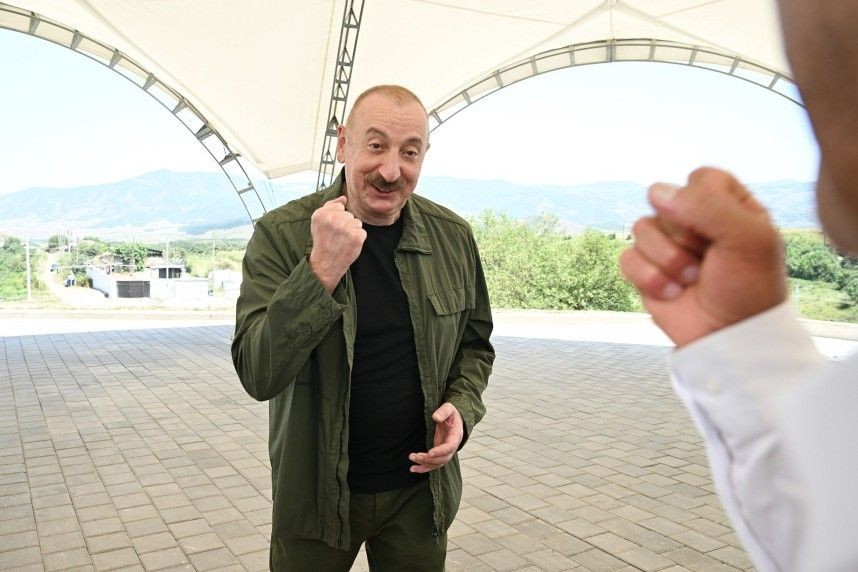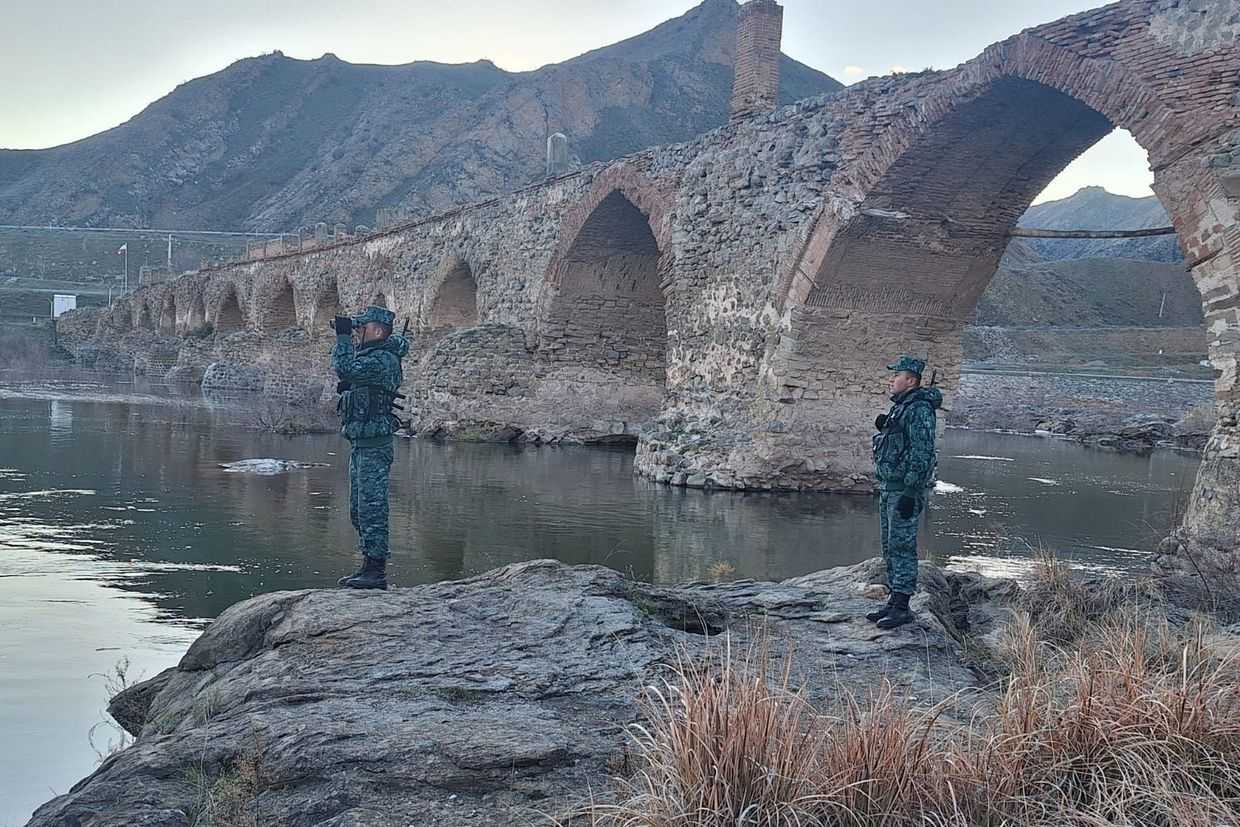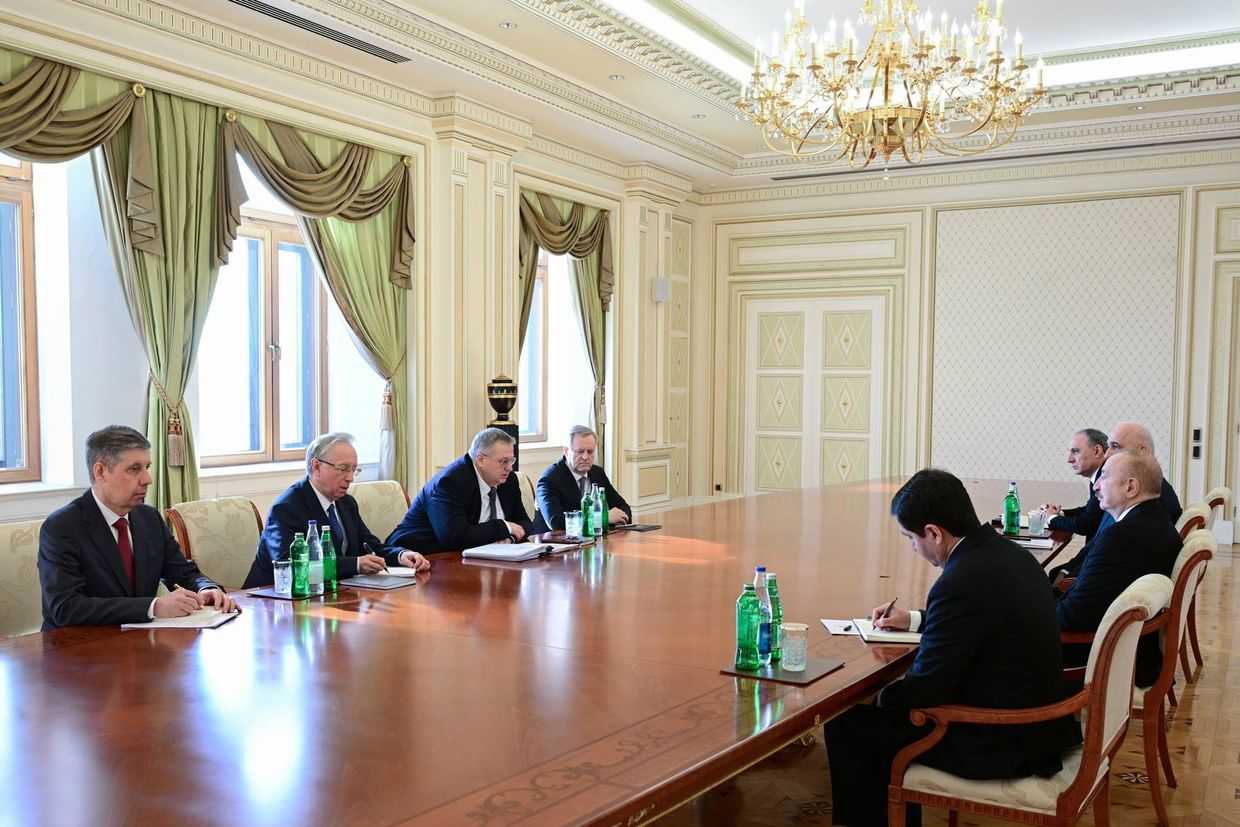
Azerbaijani President Ilham Aliyev has approved legislation further restricting foreign funding of non-government organisations (NGOs) in the country.
On Thursday, Aliyev signed amendments to the laws on NGOs and on combating the laundering of property obtained by criminal means and the financing of terrorism were.
The changes ban NGOs from receiving money from abroad under service contracts without prior government approval.
Critics said the move aimed to close one of the last loopholes used by pro-democracy groups and other NGOs to receive support for their activities.
According to the new legislation, civil society organisations and individuals can face criminal liability for performing any work at the expense of foreign financial services.
‘As in 2014, Azerbaijani law enforcement agencies are prosecuting [NGOs] for their independent and critical activities, which is a clear violation of the Constitution of Azerbaijan and the requirements of international legal treaties to which it is a party’, an Azerbaijani lawyer told OC Media on condition of anonymity.
‘In practice, this does not properly apply restrictive legislation to [NGOs] and their representatives, but, on the contrary, abuses its powers, deliberately violates laws, and applies criminal legislation in the wrong place, bringing individuals to illegal criminal liability’, they added.
The lawyer told OC Media that, currently, criminal cases against NGOs are mainly related to charges of failing to register with the state.
‘Some of them are about seeking and receiving funding without state registration, as well as a lack of registration of grants and contracts for the provision of services. Neither the veracity of these charges nor their compliance with the provisions of criminal law have been proven’.
The lawyer believes that the amendments passed on Thursday further restrict civil society organisations from obtaining funding, noting that now, ‘[NGOs] will no longer be required to provide detailed reports not only “when receiving and providing grants and donation”, but also on the sources of formation of all their assets in monetary and other forms’.
The lawyer also argued that the reasoning behind the legislation — particularly in regards to financing terrorism — was not accurate.
According to a 2023 report by the Committee of Experts on the Evaluation of Anti-Money Laundering Measures and the Financing of Terrorism (MONEYVAL), a monitoring body within the Council of Europe, Azerbaijan’s risk assessment on the NGO sector ‘failed to identify any specific NGOs or categories of NGOs at risk of being abused for terrorist financing’.
‘Reporting and monitoring measures should be carried out in a targeted manner based on a risk assessment, rather than as part of a general approach covering all NGOs’, the lawyer said.
‘In other words, NGOs should not impose obligations requiring everyone to report money laundering and terrorist financing without any assessment. It is quite interesting that Azerbaijan, which was criticised by an international organisation, would change its position in this direction and adopt even stricter rules in this area a year later’, the lawyer said.
Azerbaijan is expected to report back to MONEYVAL on progress achieved in improving the implementation of its anti-money laundering and combating financing of terrorism measures by December 2025.












